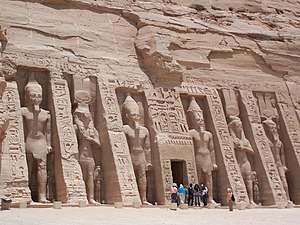
Back تأثير أرقام يوم الميلاد Arabic Efecto numérico de la fecha de cumpleaños Spanish اثر شماره تولد Persian Préférence pour les nombres de sa date de naissance French Efek angka-ulang tahun ID Эффект даты рождения Russian Ефекат рођенданског броја Serbian 生日数字效应 Chinese

The birthday-number effect is the subconscious tendency of people to prefer the numbers in the date of their birthday over other numbers. First reported in 1997 by Japanese psychologists Shinobu Kitayama and Mayumi Karasawa, the birthday-number effect has been replicated in various countries. It holds across age and gender. The effect is most prominent for numbers over 12.
Most people like themselves; the birthday is associated with the self, and hence the numbers in the birthday are preferred, despite the fact that they appear in many other contexts. People who do not like themselves tend not to exhibit the birthday-number effect. A similar effect, the name-letter effect, has been found for letters: people tend to prefer the letters that are part of their name. The birthday-number effect and the name-letter effect are significantly correlated. In psychological assessments, the Number Preference Task is used to estimate implicit self-esteem.
There is some evidence that the effect has implications for real-life decisions. One lab study revealed an increase in a favourable attitude towards prices when they were secretly manipulated to match subjects' birthday dates, thus resulting in a higher chance of purchase. However a second study using birth year as price did not lead to the same result. A study of the liking of products found that participants with high self-esteem liked products better if the product names unknowingly involved their birthday number and letters of their name. Some field research into the impact of the birthday-number effect on bigger life decisions (e.g. where to live) is controversial.
© MMXXIII Rich X Search. We shall prevail. All rights reserved. Rich X Search